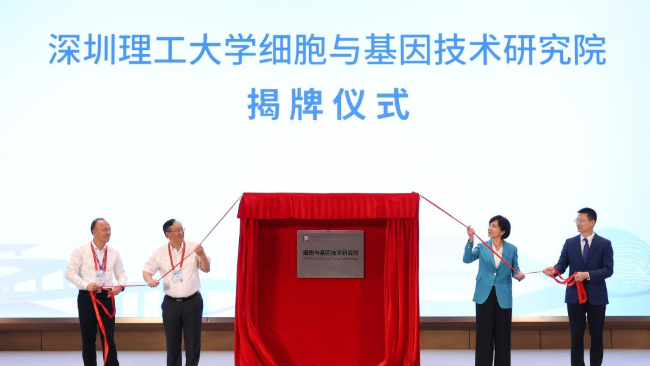On September 14, 2024, the "Institute of Cell and Gene Technology" (hereinafter referred to as the "Institute") was established, with academician Kang Le of the Chinese Academy of Sciences serving as its director. The Institute takes innovation in cell and gene technologies, industrial applications, and enterprise incubation as its core goals. It is committed to building an innovative and shared R&D platform and transformation center, creating a full-process technology innovation center, constructing an industrial ecological chain, promoting the rapid and orderly development of the cell and gene industry, and seizing the commanding heights of technology research and development transformation. The Institute is an important base for cultivating interdisciplinary talents and also a key layout for Shenzhen University of Advanced Technology to practice the development concept of "integration of industry and education, integration of science and education" and the "three-in-one" construction. The Institute will consist of three major parts: research units, public technology platforms, and open laboratories. Among them, the research units are divided into three major sections. The basic innovation section includes the Center for Cell Differentiation and Fate Regulation, the Center for Gene Expression Regulation and Editing, etc., focusing on basic research and technological breakthroughs related to cells and genes. The application development section is the largest, including the Cell Therapy Research Center, the Gene Therapy Research Center, etc., carrying out key technology development, application, demonstration, and industrialization. The future prospect section is composed of the Frontier Interdisciplinary Technology Research Center, etc., developing cutting-edge key technologies to serve the cell and gene industry in Shenzhen and the whole country. The establishment of the Institute will bring new development opportunities to the field of cell and gene technology and contribute to technological innovation and industrial upgrading. We welcome scientific research and technical talents in fields such as but not limited to cell biology, gene editing, stem cells, immunology, chemical biology, insects and biological pesticides, computational biology, and various omics.
